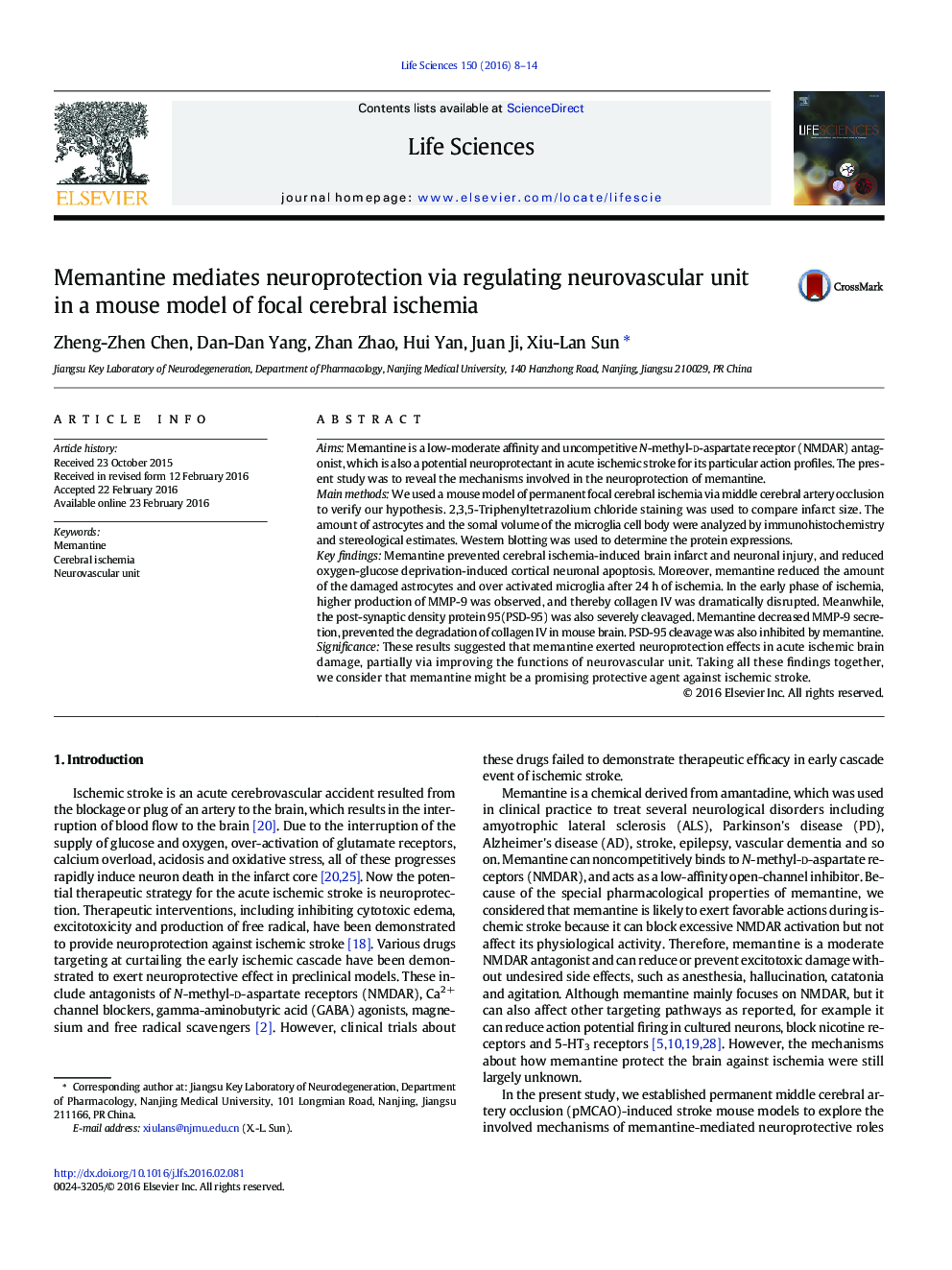| Article ID | Journal | Published Year | Pages | File Type |
|---|---|---|---|---|
| 2550467 | Life Sciences | 2016 | 7 Pages |
AimsMemantine is a low-moderate affinity and uncompetitive N-methyl-d-aspartate receptor (NMDAR) antagonist, which is also a potential neuroprotectant in acute ischemic stroke for its particular action profiles. The present study was to reveal the mechanisms involved in the neuroprotection of memantine.Main methodsWe used a mouse model of permanent focal cerebral ischemia via middle cerebral artery occlusion to verify our hypothesis. 2,3,5-Triphenyltetrazolium chloride staining was used to compare infarct size. The amount of astrocytes and the somal volume of the microglia cell body were analyzed by immunohistochemistry and stereological estimates. Western blotting was used to determine the protein expressions.Key findingsMemantine prevented cerebral ischemia-induced brain infarct and neuronal injury, and reduced oxygen-glucose deprivation-induced cortical neuronal apoptosis. Moreover, memantine reduced the amount of the damaged astrocytes and over activated microglia after 24 h of ischemia. In the early phase of ischemia, higher production of MMP-9 was observed, and thereby collagen IV was dramatically disrupted. Meanwhile, the post-synaptic density protein 95(PSD-95) was also severely cleavaged. Memantine decreased MMP-9 secretion, prevented the degradation of collagen IV in mouse brain. PSD-95 cleavage was also inhibited by memantine.SignificanceThese results suggested that memantine exerted neuroprotection effects in acute ischemic brain damage, partially via improving the functions of neurovascular unit. Taking all these findings together, we consider that memantine might be a promising protective agent against ischemic stroke.
